Kampong Cham: on 20 June 2019, the Medical Entomology Unit at Institut Pasteur in Cambodia organized an information meeting on the preliminary results of the entomological field study for the Directors of Schools involved in ECOMORE project and for the Working Group Members.
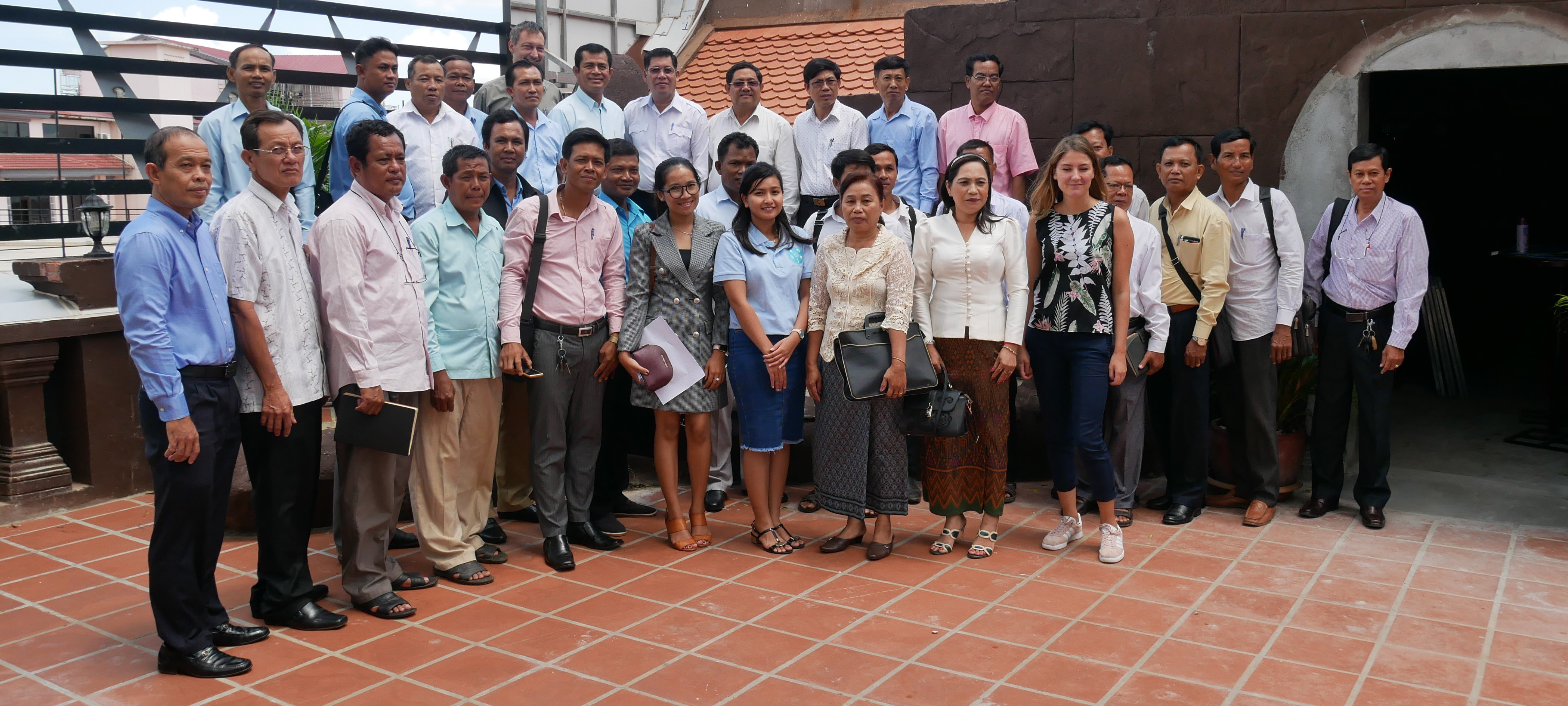
Actually the Directors of the 24 selected schools participated actively in the ECOMORE operational phase by facilitating the entomological surveys; CDC and BG traps were installed in classrooms every 3 months to make an inventory of mosquitoes and the entomological team of IPC has implemented the vector control in schools, treating water jars with Bti and servicing the In2care system every 6 weeks. Additionally they supported the COMBI approach that aims at raising awareness of schoolchildren on good practices to limit Aedes population, through posters, notebooks and presentations made by the IPC entomologists.
Reminder: origin of this study was that previous field studies have demonstrated that 60% of the likelihood of becoming infected by dengue was explained by living under the same roof as another case. Conversely, this meant that 40% of the risk potentially remained to be explained by other factors and exposures, including the main daytime exposure in that age group: attending school.
The core of the project in Cambodia is to assess if an innovative vector control strategy, necessary due to wide resistance to Temephos and other common insecticides, can mitigate dengue horizontal transmission of the virus in community.
Dr Chim Vun from the CNM (National Center for Parasitology Entomology and Malaria Control) made the opening speech, reminding that the CNM focus this year on broadcasting good practices to the population to limit Aedes density while 2019 already shows an explosion of dengue cases.
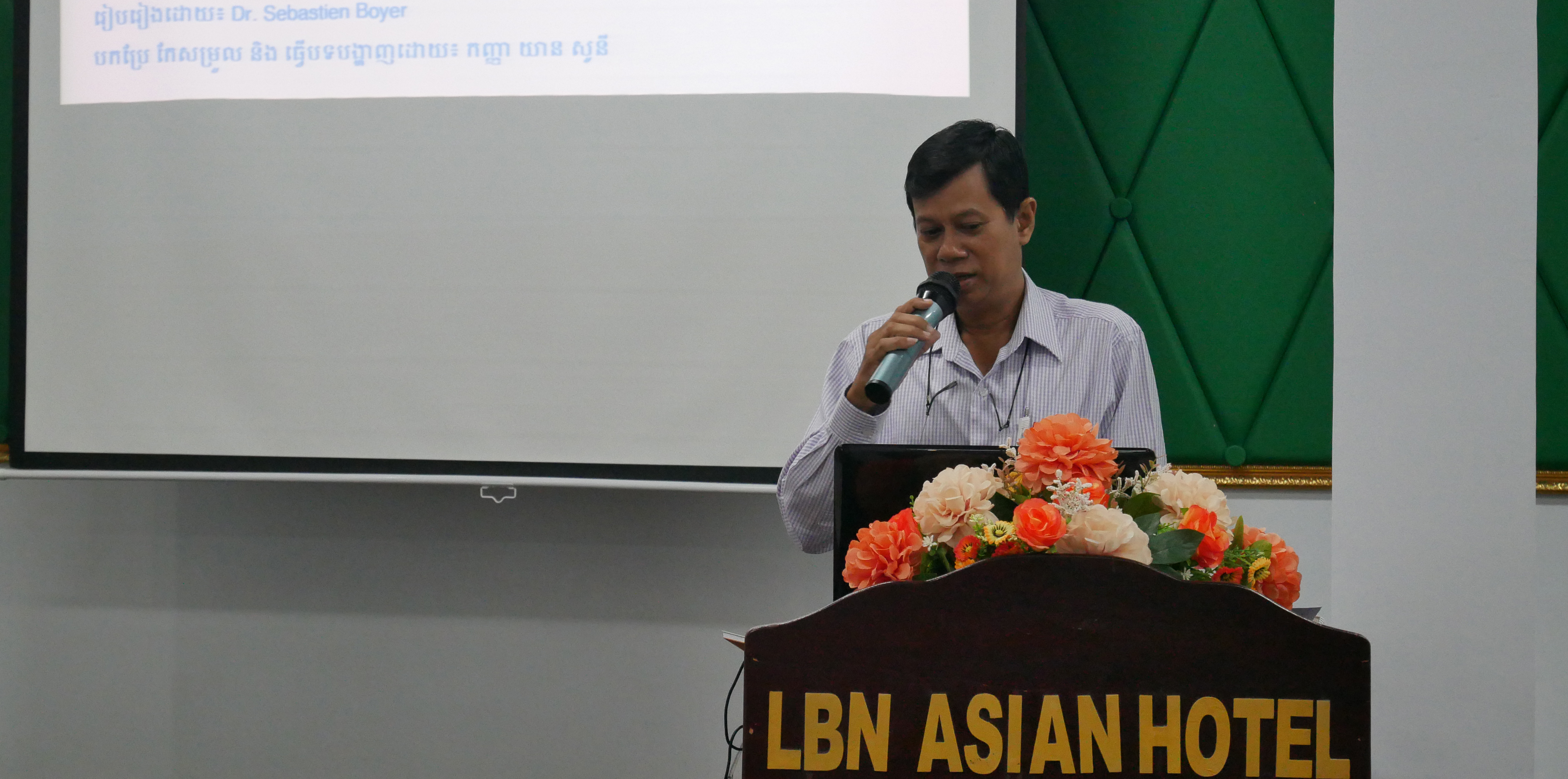
Afterward Mrs. Sony Yean, entomologist at IPC, assisted by Sébastien Boyer, senior entomologist at IPC, made an extensive presentation on:
- The mapping of intervention and non-intervention schools
- The description of vector control interventions and principles of auto-dissemination system
- The preliminary results on the mosquito inventories along the year
- The preliminary results on In2care system and Bti use on Aedes population in schools, adults and larvae
- The difficulties encountered to implement this new vector control strategy, only occasional cleaning of potential breeding sites (especially rubbish), workload for In2care system maintenance and loss of traps, cost and low residual effect of Bti…

The Director of the Provincial Health Department and several Directors of schools asked many questions on insecticide resistance and requested clear guidelines to better control mosquitoes in schools but Sébastien Boyer reminded that the ECOMORE study objective is to document some alternative techniques (and analysis of results is not yet completed) but only the CNM can issue general guidelines; he added that none technique can be absolutely effective but in absence of a vaccine, vector control remains the only way to mitigate the burden of dengue. Mr. Ly Mengsan Director of MoEYS in Kampong Cham province and Mr. In Povsombat Director of MoEYS in Tboung Khmum province suggested to spread information on good practices to all schools.
This feedback meeting is an important part of the Knowledge Translation Platform and in addition to the Directors of school, it brought together the members of the Working Group; this group already met in January and September 2018 and Dr Chim Vun from CNM, Dr Holl Davun from GDAHP, Mr. Jin Narong from Head Office for School Health Department at MoEYS, Mrs. Le Layo from AFD made the trip to Kampong Cham to join this meeting.


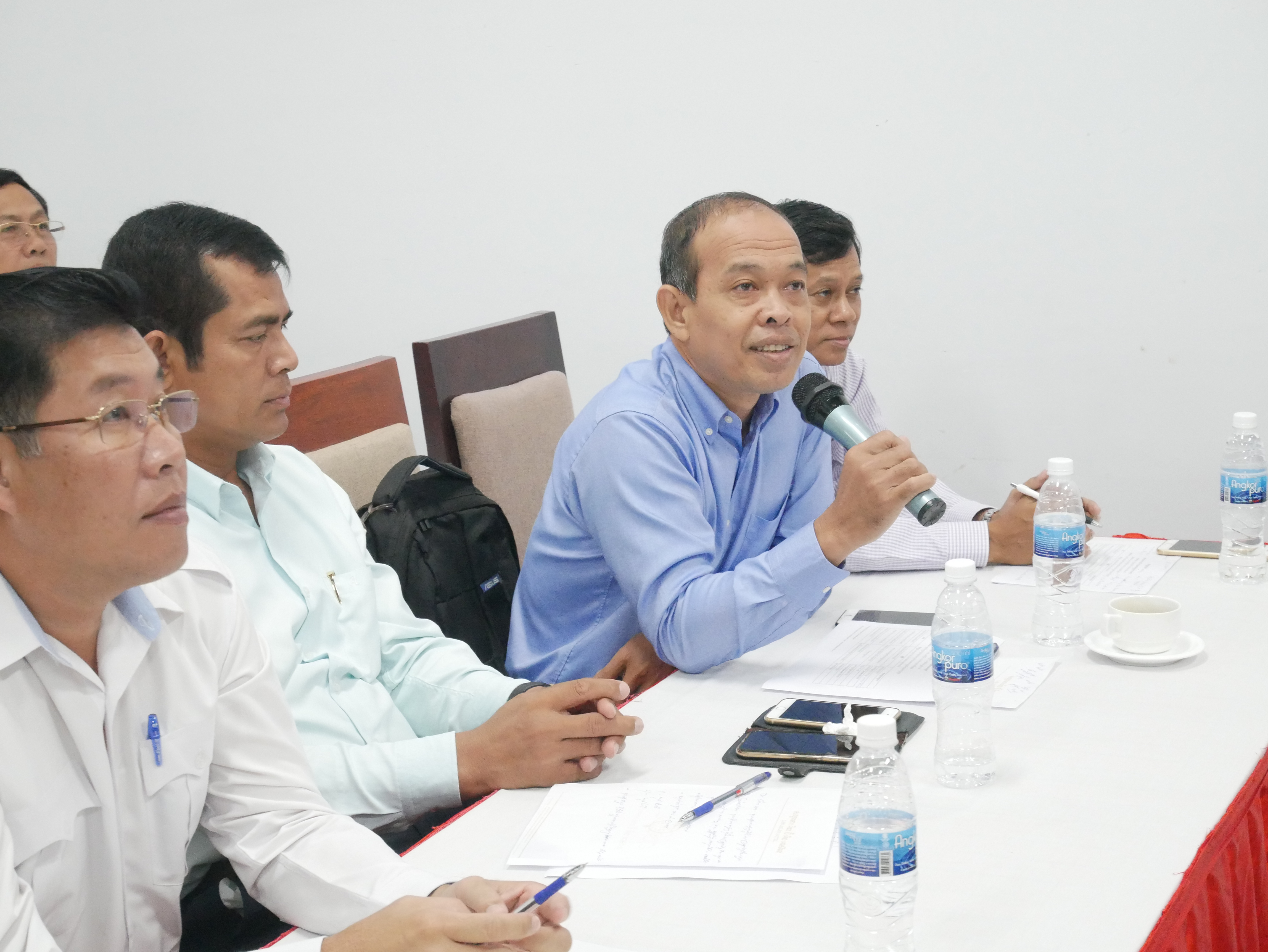
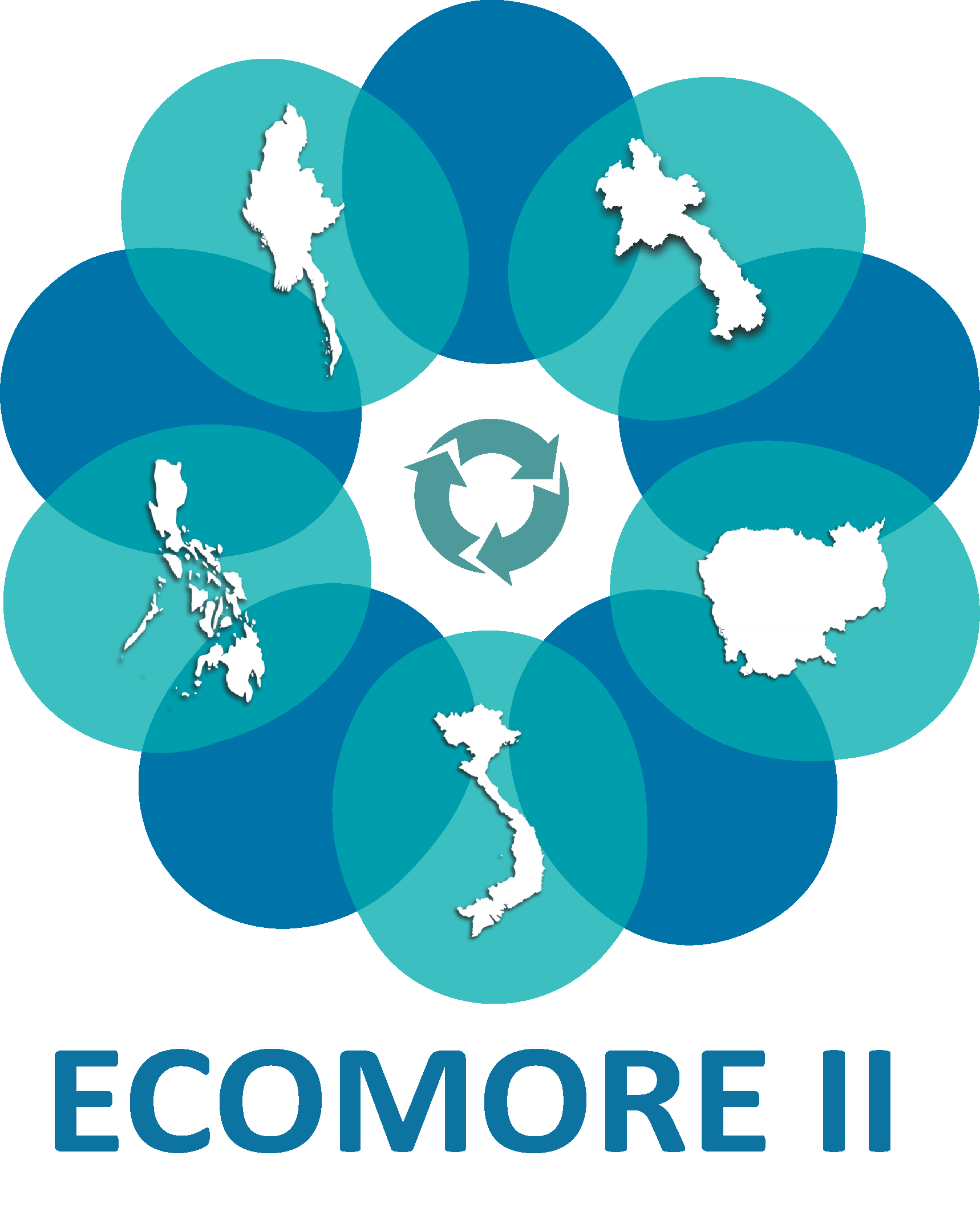
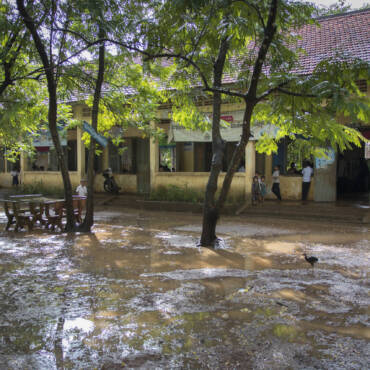
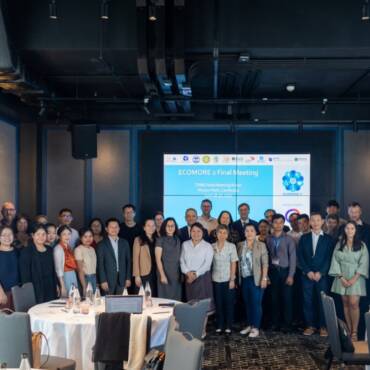
Add Comment